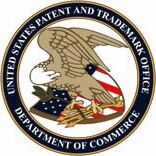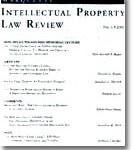“Greta Garbo, and Monroe, Dietrich and DiMaggio”: Persona, Authenticity, and the Right of Publicity Then
 Summer is here and, much to my joy, videos are back! The confluence of Lady Gaga, Glee, OK GO, and You-Tube has reminded us of the great art form of the 1980s, the video, a four- to five-minute presentation of a lip-synched musical song in which dance-choreography was more often than not a crucial element. The video had elements of a copyrighted work (under Section 102 of the Copyright Act, it can comfortably be classified as audiovisual work), but more importantly than that, the video served as an extended commercial to prompt the viewer to go out and purchase the artist’s work.
Summer is here and, much to my joy, videos are back! The confluence of Lady Gaga, Glee, OK GO, and You-Tube has reminded us of the great art form of the 1980s, the video, a four- to five-minute presentation of a lip-synched musical song in which dance-choreography was more often than not a crucial element. The video had elements of a copyrighted work (under Section 102 of the Copyright Act, it can comfortably be classified as audiovisual work), but more importantly than that, the video served as an extended commercial to prompt the viewer to go out and purchase the artist’s work.
The video, though, at its greatest heights, was used by its more skilled practitioners to build and shape the individual artist’s persona beyond the popularity of any particular song. This often had the effect of strengthening the long-term commercial value of an artist’s work. I think, often, of the careers of Cyndi Lauper and Madonna as demonstrating the importance of this particular principle. Cyndi had the singing and writing chops (“Time After Time,” anyone?), but Madonna used the video art form to its maximum extent, making relevant her persona for over twenty-five years (yes, people, twenty-five years).
Thus, the video also invokes a more neglected sister of copyright, the right of publicity, which broadly protects the commercial value of a person’s identity.

 The citizenry of the United States awoke to shocking news this morning . . . the United States Patent and Trademark Office has rescinded its controversial continuation application rules package (what was that about a Nobel Peace Prize?). The link to the press release
The citizenry of the United States awoke to shocking news this morning . . . the United States Patent and Trademark Office has rescinded its controversial continuation application rules package (what was that about a Nobel Peace Prize?). The link to the press release 